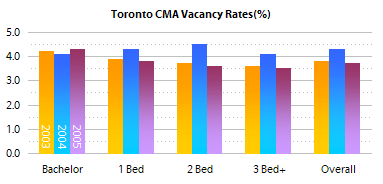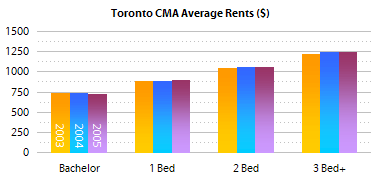T.O. Apartment standards violations online
Considering moving to a new building? Curious about how many apartment standards violations have been reported for a given address in Toronto? Want to know if your fellow tenants have complained to the City about maintenance problems?
This online tool that reports every Order to Comply issued by the City's Apartment Stadards folks, as well as details and status of the order for those issued after July 31, 2005.
Information about such orders is only kept online for 2 years, and once an order has been complied with, detailed information about the complaint is no longer available to the public.

The database shows three citations for my building, but since they were issued prior to July 31, all I can tell is that they are "closed".

